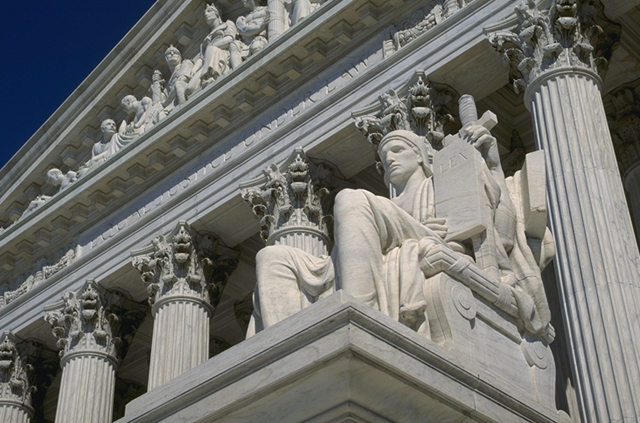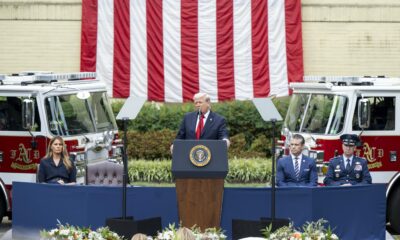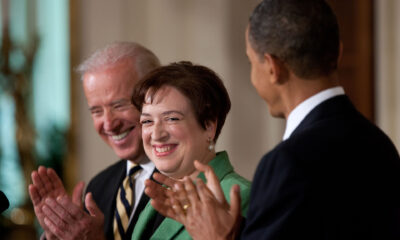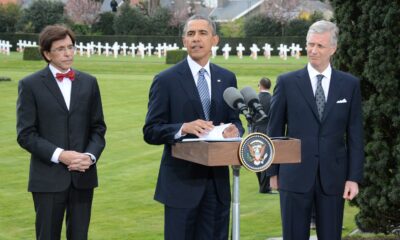Constitution
Who Gets To Say What the Rules Are?

Who gets to make the rules in American government? One of the most controversial and important cases before the Supreme Court concerns that crucial question.
Primacy of agency rules – the Chevron case
Congress makes the rules for the federal government in the form of laws. But federal agencies must enforce the law and often must make rules of their own – regulations – to do so. And courts then sometimes must resolve disputes about whether an agency’s regulations are well-grounded in the statutes that Congress produces.
About 40 years ago, the Supreme Court tried to make things less confusing by setting some ground rules about who gets to make the rules. The Supreme Court decided to create a rule about rules: It said that if an agency’s rule produced a reasonable interpretation of an ambiguous statute passed by Congress, then courts should defer to the agency. In other words: If an agency’s rule is challenged in court, then a court decides whether the agency’s rule makes for a reasonable interpretation of the statute. If the court decides that the agency’s rule is reasonable, then the agency’s rule – even when challenged in court – always wins.
Perhaps the architects of the Chevron principle thought this was a good way to reduce conflict between various parts of the government. Unfortunately, that solution created a new problem: an avalanche of new federal rulemaking that is increasingly difficult for citizens to challenge in court.
Critics of the Chevron principle – including several justices currently sitting on the Supreme Court – have noted that it appears to have a strange and disturbing consequence: Namely, in some circumstances it is agencies, not courts, that have the final word when interpreting the law.
The Raimondo case
Earlier this year, the Supreme Court heard the Loper Bright Enterprises v. Raimondo case, a lawsuit that unavoidably put the Chevron principle in the spotlight. The Loper Bright parties challenged a rule that requires professional fishermen to pay the salaries of government observers who are required to tag along aboard commercial fishing boats. It is not hard to see why the lawsuit was brought: Imagine if, one day, some federal bureaucrat told you that, from now on, not only is there going to be a new person at your workplace who will monitor you to ensure that you’re doing your job correctly, but you’re also going to have to pay his salary! (CEI submitted an amicus brief to the Supreme Court in this case.)
There is no statute that expressly requires fishermen to pay for their own federal monitors. Nonetheless, the agency’s regulation (that is supposed to be based on the statute) requires this payment. Whatever is going on here, it looks like the agency isn’t interpreting anything; instead, it looks like the agency is serving as an additional legislature. In short, this case is about two questions: first, whether the regulation genuinely springs from the statute and, second, whether Chevron prevents the court from looking at the first question.
Will the Supreme Court throw out the Chevron Deference doctrine?
Those who observed the oral argument for Loper Bright a few months ago have good reason to believe that Chevron is in the court’s crosshairs. At the argument, Justice Brett Kavanaugh observed that Chevron “ushers in shocks to the system every four or eight years when a new administration comes in,” bringing “massive change” to regulations regularly. That’s because there are plenty of agencies that take their cues from whoever is president and implement policies that they believe the boss will like.
Justice Neil Gorsuch then noted that Chevron also allows agencies to inject institutional self-interest into their own regulations. For instance, when agencies must deal with veterans’ benefits or Social Security claimants, Chevron encourages agencies to make rules that benefit those agencies but operate to the detriment of “the little guy” – because there is a danger that the agency will interpret the statute in a way that makes it as easy as possible to administer.
At the end of the oral argument, one of the lawyers before the court suggested that the Chevron rule could not be limited or modified; rather, he said, the court should “recognize that the fundamental problem is Chevron itself.” It’s a good bet that in the coming weeks the majority of justices will agree – and decide that it’s time once again to let the courts exercise their traditional function of interpreting the law.
This article was originally published by RealClearPolitics and made available via RealClearWire.
Dan Greenberg is general counsel of the Competitive Enterprise Institute, a free-market think tank in Washington, D.C.
-

 Accountability3 days ago
Accountability3 days agoWaste of the Day: Principal Bought Lobster with School Funds
-

 Executive1 day ago
Executive1 day agoHow Relaxed COVID-Era Rules Fueled Minnesota’s Biggest Scam
-

 Civilization8 hours ago
Civilization8 hours agoWhy Europe Shouldn’t Be Upset at Trump’s Venezuelan Actions
-

 Constitution2 days ago
Constitution2 days agoTrump, Canada, and the Constitutional Problem Beneath the Bridge
-

 Civilization1 day ago
Civilization1 day agoThe End of Purple States and Competitive Districts
-

 Christianity Today8 hours ago
Christianity Today8 hours agoSurprising Revival: Gen Z Men & Highly Educated Lead Return to Religion
-

 Civilization5 days ago
Civilization5 days agoThe devil is in the details
-

 Executive20 hours ago
Executive20 hours agoWaste of the Day: Can You Hear Me Now?














